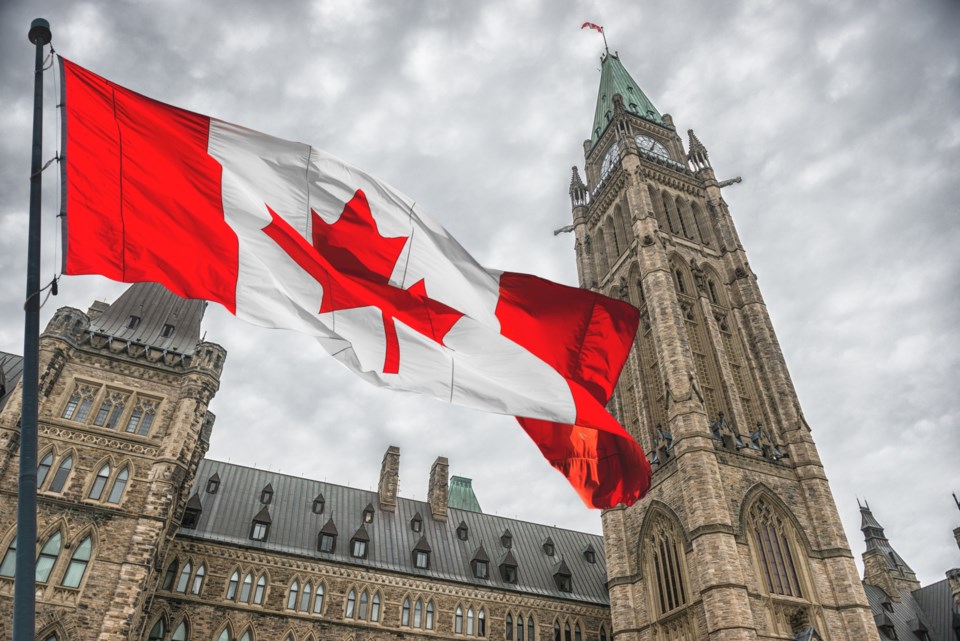We are at a new low when we can’t trust a former governor general to do the right thing for the country.
Sorry to say, it is what it is.
And it is what it is because the person David Johnston is serving – Justin Trudeau, the prime minister – seems to have set him up.
Johnston is, by reputation, of great integrity and principle. His leadership of McGill University and University of Waterloo, and his first-rate stint as the Queen’s representative in Canada, furnished profile and credibility.
Given his position at McGill, he knew the prime minister’s father and fellow Montrealer, the then-prime minister Pierre Trudeau, who brought his boys for a handful of skiing trips to Mont Tremblant and parked his car at Johnston’s condo.
From the elder Trudeau’s funeral until the son Trudeau became an MP a long time later, they didn’t further communicate, so that hardly makes him a deep-seated friend. But there is this persistent belief he is so familiar as to be familial, and perception is often as important as reality – even if unfair – in creating conflicts of interest.
Which now has played out suddenly and terribly for Johnston, because despite his best intentions he appears to be serving the government’s interests ahead of the public’s interests in his handling of the assignment by Trudeau to determine if a public inquiry is warranted into foreign political interference.
Indeed, the trust issue isn’t any longer only about any accusation of Johnston’s lack of independence. It has morphed into a second, substantial trust issue – whether we accept his judgment that there isn’t undue foreign furnishing of scandalous subversion amok in our politics and thus no issue here worth the pain of unfurling.
For months Johnston got to read secret documents, interview high-ranking officials and deliberate on whether the 2019 and 2021 elections were influenced from abroad, particularly by China. Given the immense intrigue and suspicion, just about everyone thought he’d conclude it was a hot mess worth dissecting.
Instead, Johnston has rather made a mess of his own by saying the elections weren’t distorted and a full-fledged inquiry isn’t a good idea – and, most importantly, that he needs to be trusted on this.
He contends that an inquiry would be largely conducted out of public view and that its findings would even be muted as a result, even though we’ve had many of those and found ways to not suffer eventually from vague inconclusiveness about the scandal.
Johnston has instead proposed a one-person study on the many ancillary tentacles of this issue, mainly in the way information is gathered, processed and delivered to the upper echelon of the public service and political office. In politics, this is usually called a pivot.
The prime minister, unsurprisingly, says he won’t overrule Johnston. He has little to gain from a probe. Which, sorry again to say, sets off the smoke detector again and only raises suspicion that something is being kept from us – as, sigh, many point to those nothingburger familial ties and, as only Conservative leader Pierre Poilievre could term it, their treks as “ski buddies.”
Also unsurprisingly, the MPs who are not Liberals and, surprisingly, a dazzling array of experts are speaking out for a public probe, so it seems to be two people against the world on this issue.
A public inquiry is necessary. Look, it really is – no matter that Johnston’s 59-page report is the best glimpse we’ve had into our intelligence services, no matter that he took each provocative media story and found relevant documents to find the black and white and grey to develop a new context on the news.
An inquiry would compel people under oath, would summon thousands of documents, would deliver even with some cloaking of confidences a clearer picture of what we’re dealing with and why in Canada as bigger, brutish countries brazenly bully us. We would learn about what enables this systemic effort to influence our politics and who in Canada consorts with those abroad.
Johnston, even given his five-star resumé, is asking too much in asking us to trust him. He ought to have been the key into the ignition, not the brake pad.
The result is that our suspicions, but not necessarily our contextual knowledge, will stay well-fed each time media uncover a new facet of what we fear is an outrageous situation. We will continue to depend on our darkest inclinations, rather than take solace from enlightenment.
Kirk LaPointe is publisher and executive editor of Business in Vancouver and vice-president, editorial, of Glacier Media.



